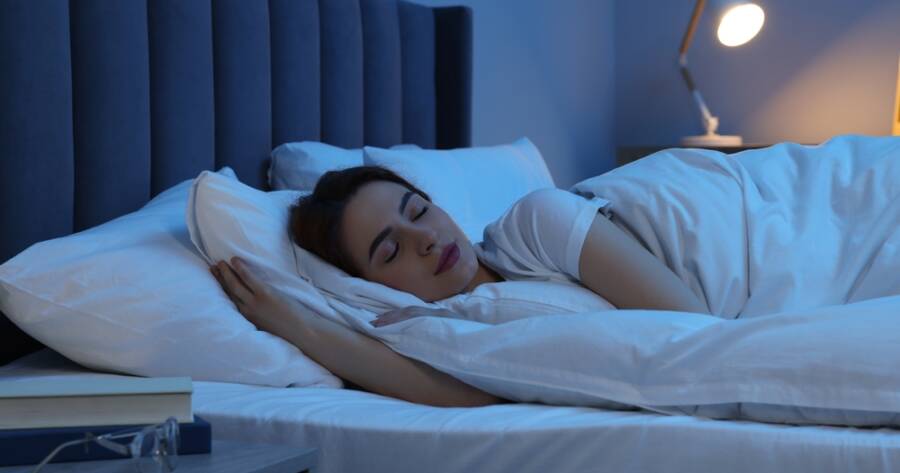Sleep is the foundation of good health, yet many people struggle to get the rest they need. Stress, screen time, and modern lifestyles have disrupted natural sleep cycles, leading to fatigue and long-term health issues. Fortunately, new wellness strategies are emerging to help optimize rest, from circadian-friendly lighting to biohacking techniques that enhance sleep quality. By making intentional changes, it’s possible to achieve deeper, more restorative sleep for better overall well-being.
Circadian-Friendly Lighting: Aligning with Your Natural Sleep Cycle
The body’s internal clock, or circadian rhythm, is heavily influenced by light exposure. Modern artificial lighting and excessive screen time can disrupt this rhythm, making it harder to fall asleep and stay asleep. Implementing circadian-friendly lighting can help reset the body’s natural sleep-wake cycle.
- Use Warm Lighting in the Evening – Switching to warm, dim lighting at night mimics the natural sunset, signaling the body to produce melatonin, the sleep hormone.
- Limit Blue Light Exposure – Blue light from screens suppresses melatonin production. Using blue light-blocking glasses or activating “night mode” on devices can help mitigate its effects.
- Sunlight Exposure in the Morning – Natural sunlight exposure in the early hours helps regulate the circadian rhythm and promotes wakefulness, making it easier to fall asleep at night.
By adjusting light exposure throughout the day, it’s possible to train the body to follow a healthier sleep pattern.
Sleep Biohacking: Enhancing Rest Through Science
Biohacking techniques use science-backed methods to improve sleep efficiency and maximize restorative benefits. From technology-assisted sleep tracking to nutritional adjustments, these strategies can help fine-tune sleep habits.
- Wearable Sleep Trackers – Devices like the Oura Ring and WHOOP provide data on sleep stages, heart rate variability, and recovery, offering insights for optimization.
- Breathwork and Meditation – Deep breathing techniques, such as the 4-7-8 method, activate the parasympathetic nervous system, promoting relaxation before bed.
- Nutritional Sleep Aids – Natural supplements like magnesium, glycine, and L-theanine can support relaxation and improve sleep quality.
- Temperature Regulation – Maintaining a cool sleep environment, around 60-67°F (15-19°C), can enhance deep sleep stages.
By integrating these biohacking methods, individuals can gain greater control over their sleep health and performance.
Creating a Sleep-Inducing Bedroom Environment
The bedroom environment plays a crucial role in sleep quality. Optimizing the sleep space can make it easier to relax and fall into a restful state.
- Invest in a High-Quality Mattress and Pillow – Proper spinal alignment and comfort are key factors in achieving deep sleep.
- Use Blackout Curtains – Eliminating light pollution can prevent disturbances that interrupt sleep cycles.
- Reduce Noise Disruptions – White noise machines or earplugs can help mask disruptive sounds and promote continuous rest.
- Declutter and Remove Electronics – A clutter-free, screen-free bedroom fosters relaxation and minimizes stress-related wakefulness.
Creating a serene, sleep-friendly environment helps reinforce the body’s natural ability to unwind and rest deeply.
Adopting a Consistent Nightly Routine
A structured evening routine signals the body that it’s time to wind down. Simple habits can make a big difference in preparing for restful sleep.
- Set a Regular Sleep Schedule – Going to bed and waking up at the same time every day, even on weekends, strengthens the circadian rhythm.
- Engage in Relaxing Activities – Reading, journaling, or taking a warm bath can ease the transition into sleep.
- Avoid Caffeine and Heavy Meals Before Bed – Stimulants and large meals close to bedtime can interfere with the body’s ability to relax.
- Practice Gentle Movement – Light stretching or yoga can release tension and calm the nervous system.
Developing a consistent nighttime ritual reinforces sleep as a priority and enhances overall restfulness.
A New Approach to Restful Living
The sleep revolution is transforming the way people approach rest, emphasizing science-backed strategies to improve sleep quality. By aligning with natural circadian rhythms, incorporating biohacking techniques, optimizing the bedroom environment, and following a structured nighttime routine, achieving deep, restorative sleep becomes more attainable. Prioritizing better sleep isn’t just about feeling more energized—it’s about enhancing long-term health, mental clarity, and overall well-being.

